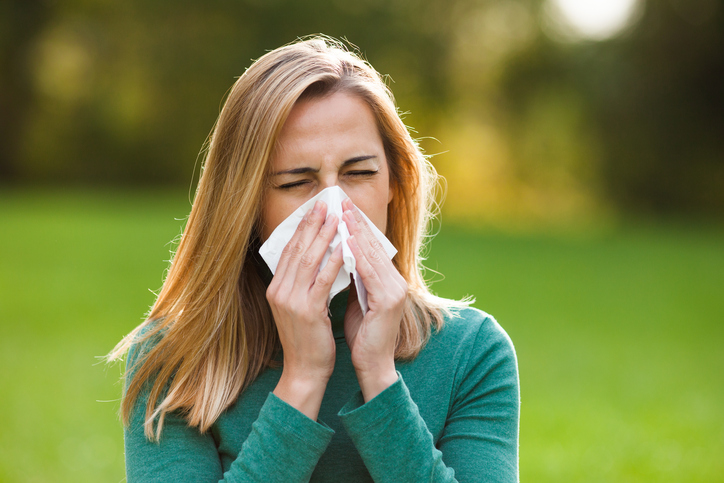The beginning of spring brings warmer temperatures and a blooming landscape. Unfortunately for allergy sufferers, spring can also bring along sniffling, sneezing and itching.
The warmer-than-average February experienced throughout much of the country – including Kentucky, Ohio and Indiana – means that some trees started to pollinate early, so you may already be experiencing allergy symptoms even before the official start to spring.
Approximately eight percent of American adults and nine percent of children suffer from spring allergies to pollen and mold – which is also referred to as hay fever – according to the American Academy of Allergy, Asthma and Immunology.
It’s a good idea to visit your doctor if you need new medication before spring begins. Some medications, including nasal steroid sprays, take two or three weeks before they are working fully. You might want to start using those medications a couple of weeks prior to when you typically develop spring allergy symptoms.
The ACAAI offers some tips for minimizing your exposure to allergens and your symptoms.
- Follow pollen and mold counts on weather reports.
- Keep windows and doors closed at home and in your car during allergy season.
- To avoid pollen, know which pollens you are sensitive to and then check pollen counts. In spring and summer, during tree and grass pollen season, levels are highest in the evening. In late summer and early fall, during ragweed pollen season, levels are highest in the morning.
- Take a shower, wash your hair and change your clothes after you’ve been working or playing outdoors.
- Wear a filter mask when mowing the lawn or doing other chores outdoors, and take appropriate medication beforehand.
If you haven’t seen an allergist or your primary care physician for allergy symptoms, it might be time to look into allergy testing to find your specific allergens so you know how to treat – and prevent – symptoms. Allergy shots are another option for treatment for some allergy sufferers. The shots can desensitize you to your specific allergens and make exposure to allergens more tolerable.

